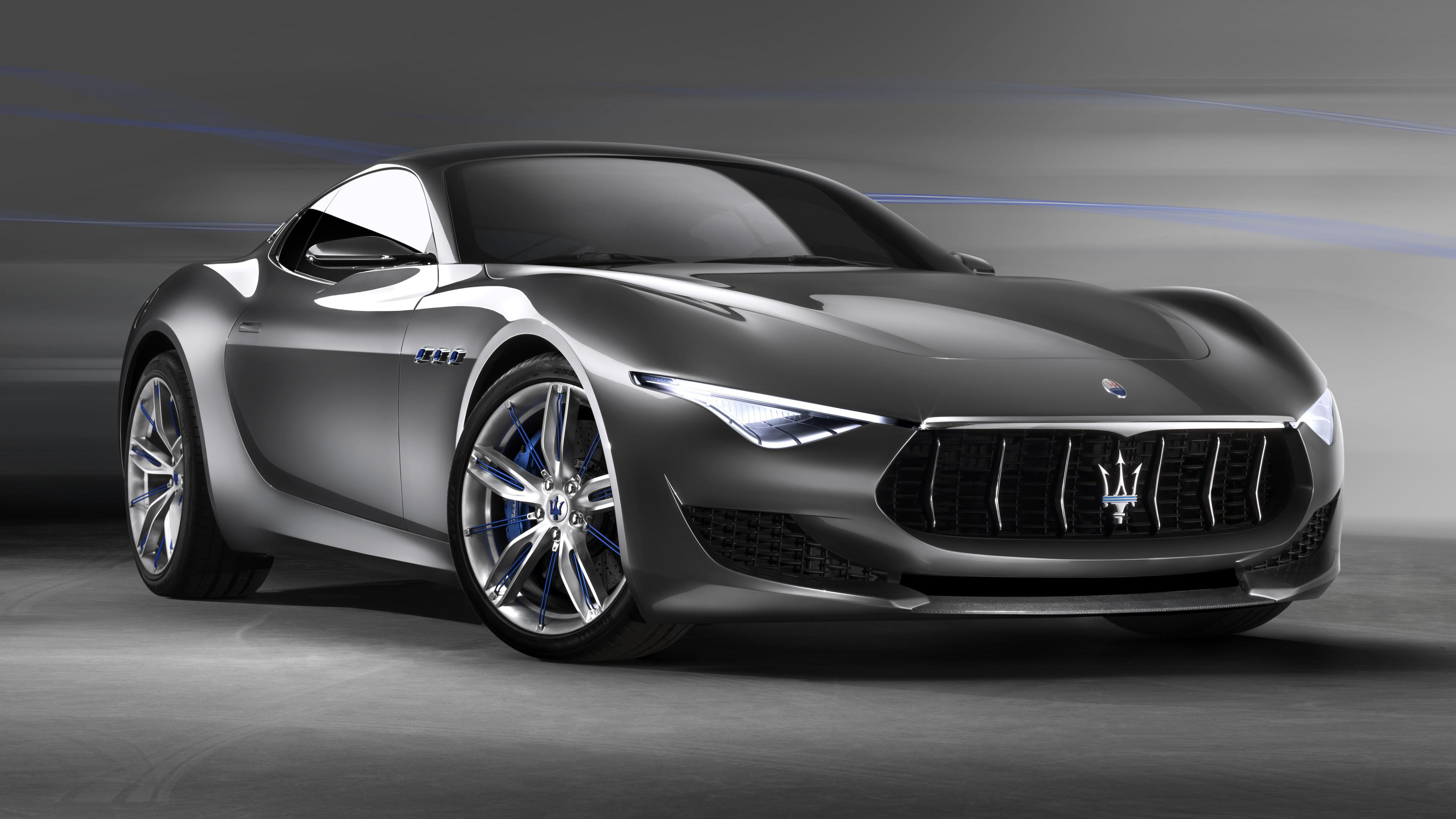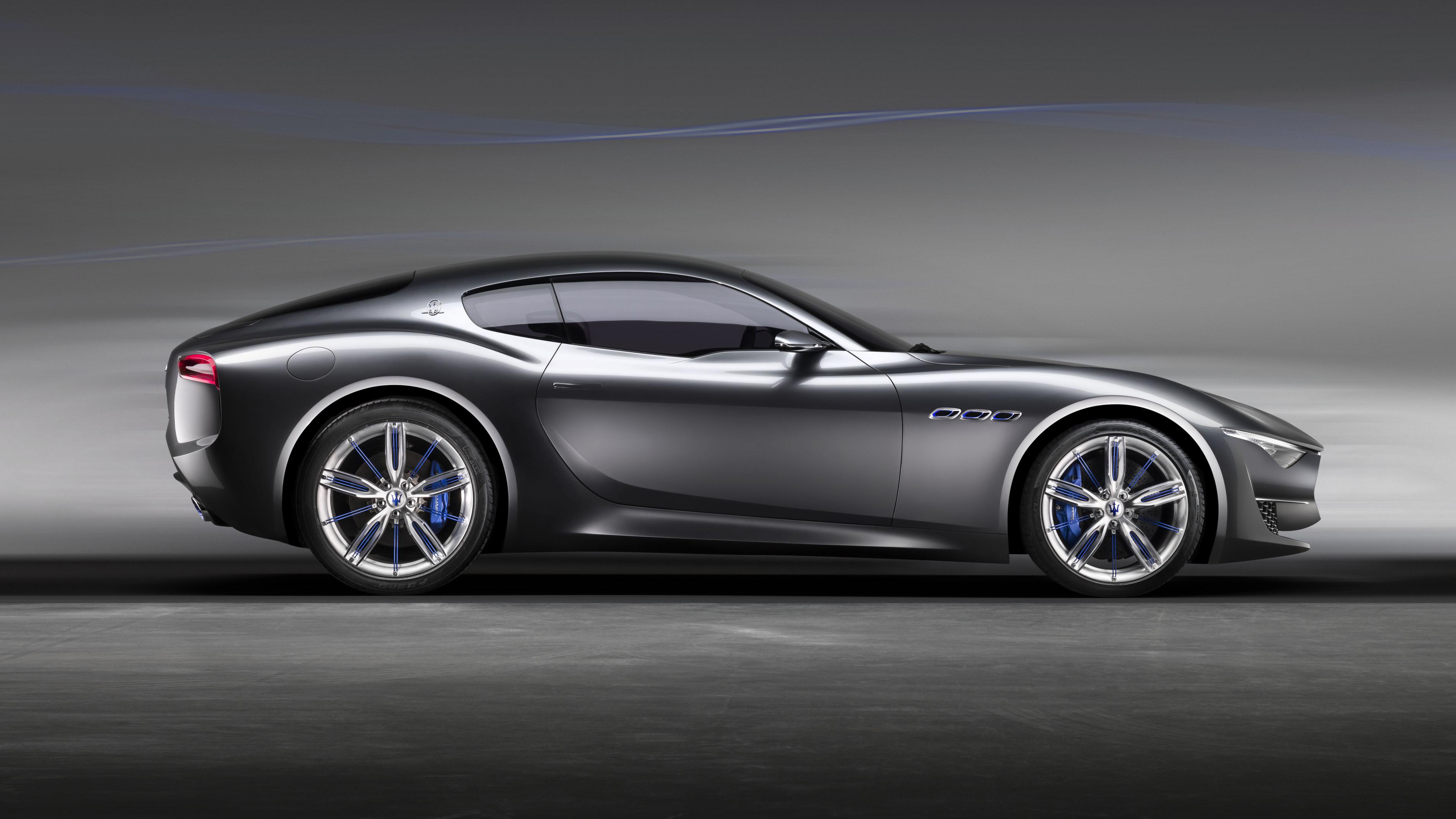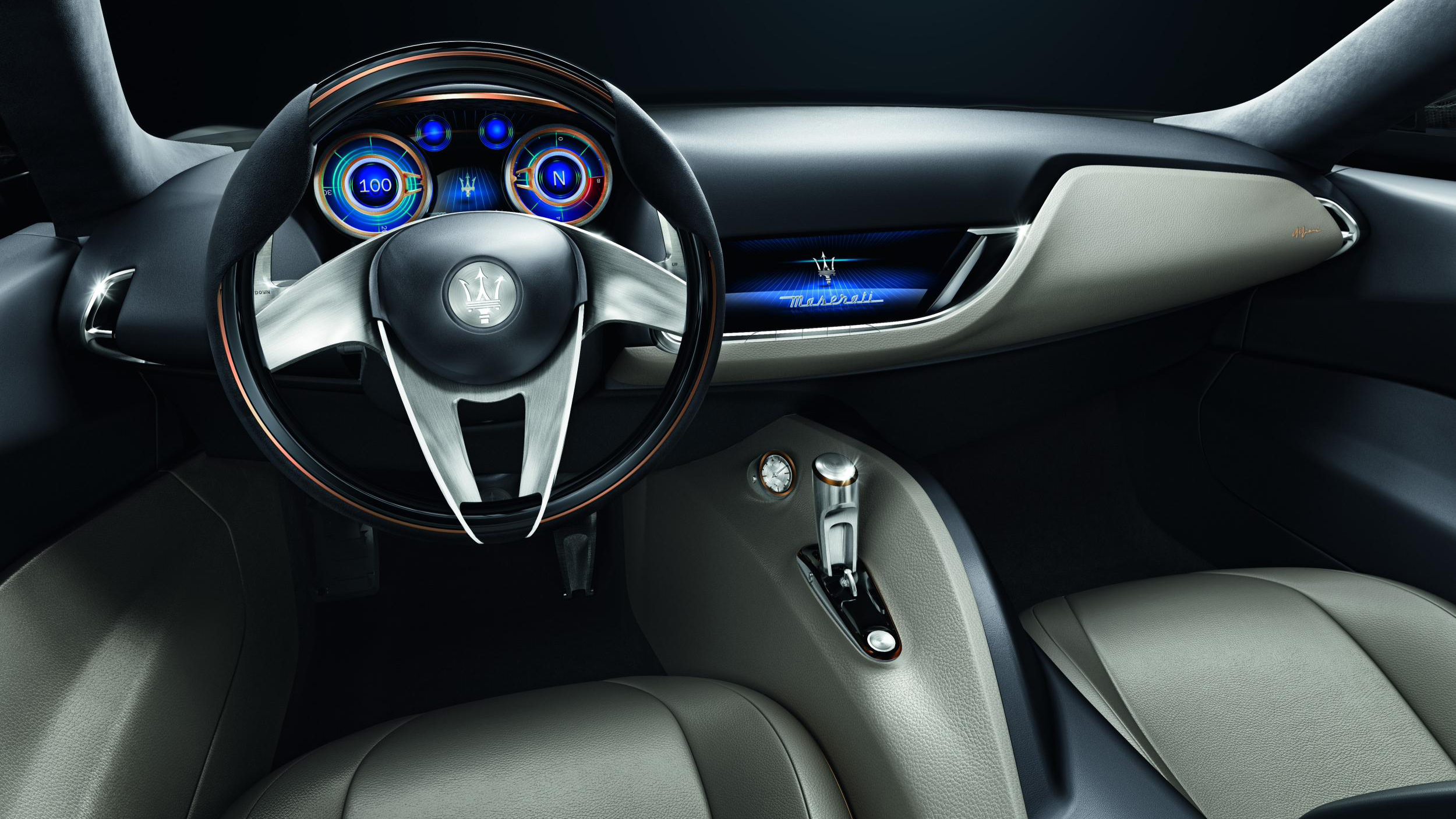
Future Maseratis will be electric. Here's why
FCA fleshes out plan to electrify its future cars, including the gorgeous Alfieri...
During an intense four-week period where the car world spoke of little else but electric power - electric Volvos, electric Minis, Tesla's Model 3, Porsche and Mercedes to Formula E, the Renault Zoe e-Sport - one of the last hold-outs for conventional engines is beginning to topple. Sergio Marchionne, the CEO of the Fiat-Chrysler Group, began to flesh out a plan to electrify the Group's cars, beginning with Maserati and its long-postponed Alfieri smaller sports coupe (pictured above).
Earlier in the year the Group officially announced that it was developing an all-new electric platform for Maserati, but we now know that Maserati will be a springboard for EV technology that'll migrate across the group.
Marchionne told stock market analysts: "At least one of our brands, and in particular Maserati, will, when it completes the development of its next two models, effectively switch all of its portfolio to electrification." Maserati's next models will be a replacement for the 2+2 Grancoupe and Grancabrio in 2019.
After that, then, he's implying it's the EV for the Alfieri, and then other models. "Post-2019, [Maserati] will start launching vehicles which are all electric and which will embody what we consider to be state-of-the-art technology."
That development will be spread across the FCA Group. "It's an integral part of a broader strategy on electrification which will see more than half of the Group's fleet, by the time we hit 2022, incorporating electrification."
This will also mean electric Alfa Romeos. Alfa has stuck with a pretty simple powertrain plan so far, because it needed to launch a whole range of cars quickly. The Giulia and Stelvio are the start of that range. It couldn't afford to do a lot of development on minority-interest powertrains while it was busy rolling out the new models.
FCA does already have a plug-in hybrid, the Pacifica. That technology will be adapted for PHEVs across the Group.
Also, FCA has said for a while that it will do a lot of work on 48-volt mild hybrids, which were a big part of why Volvo was able to say all its newly introduced cars after 2019 would be 'electrified'.
The new emphasis on electrification is a major change of heart for FCA. Remember, so far it has made just one solitary electric car, an electrified version of the Fiat 500 which sold from 2012 to 2016 to meet a California state law. Marchionne publicly urged people not to buy it, because he said Fiat would lose $10,000 on each one.
He was always fixated on only investing in technology and cars that should see a quick profit. He always said, believe him or not, that FCA or any other car maker could build cars to match Tesla's, but didn't want to because there was no money in it. "There's nothing that will prevent a [manufacturer] from engaging in the type of development work that Tesla has done so far." Sure enough, Tesla's price stock rides high but profits are nowhere. "My aversion to electrification was based on pure cost issues."
Top Gear
Newsletter
Thank you for subscribing to our newsletter. Look out for your regular round-up of news, reviews and offers in your inbox.
Get all the latest news, reviews and exclusives, direct to your inbox.
Marchionne admits FCA is having a late change of direction, following all its rivals. "Yes, electrification is here. I've joined the rest of the crew."
So why the change of heart? "What has really made the issue absolutely mandatory now is the fate of diesel. Especially in Europe, the inclusion of some type of electrification on petrol engines is inevitable."
But he remains cautious about the take-up of electrified (ie hybrid) or full-electric vehicles. He says it's not the capital and R&D cost that will make them expensive, but the cost of batteries per car sold, so there will be no economy of scale. "If the cost of batteries doesn't come down quickly then I think returns are going to be under fire." He adds that because so many carmakers will be making EVs in about five years from now, battery demand could exceed supply and their cost won't fall – as most industry analysts predict – but actually rise. "I still think there's going to be a huge increase in prices in 2021, 2022. If electrification becomes as widespread as people expect, there has to be a shift in pricing. And that will cause a shrinkage of demand."
Don't imagine FCA's road-to-Damascus conversion on electricity is going to be matched by jumping on the autonomous cars bandwagon, by the way. It's true Chrysler has supplied minivans to Waymo (the new name for the Google autonomous car project). But it isn't investing much.
As for car-sharing, that's another thing FCA is getting dragged into unwillingly. It's a hot topic embraced by BMW, Ford, VW, GM and many more, who have all taken expensive stakes in car-sharing start-ups, or indeed launched their own.
Here's Marchionne: "There's a phenomenal amount of activity down in Silicon Valley. There are a number of people who are willing to fund the capital requirements of the start-ups. And we are at a loss at trying to determine who's going to win that game. I think it's crazy because I just don't know what the returns are or the timeframe. But having said this, I think we will be there eventually."










